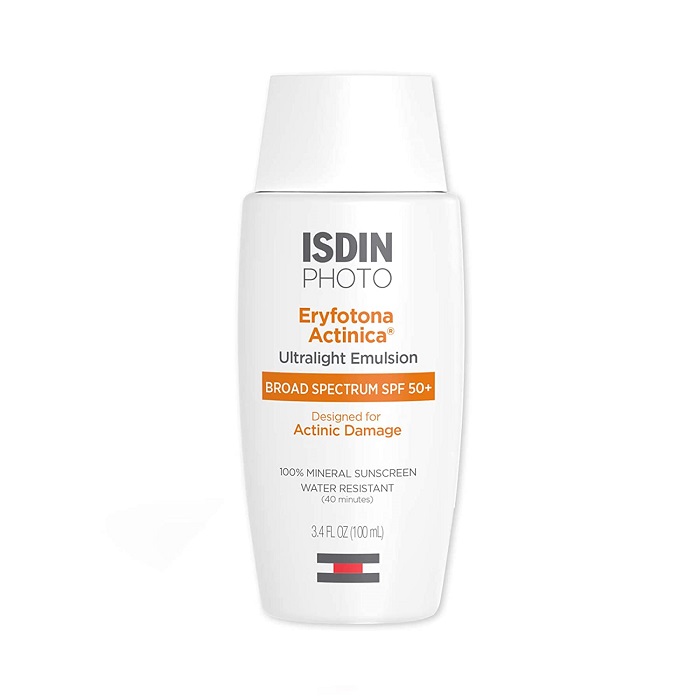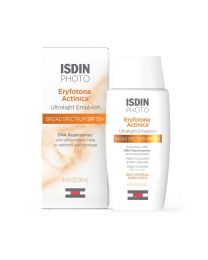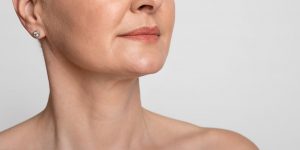Free Shipping Over $100
Free Samples With Every Purchase
Auto Replenishment Available
Authorized Reseller
Do You Need Sunscreen if You Have Dark Skin?

The short and simple answer is – yes. You can find information about the top recommendations for sunscreen to support skin health at the end of this blog. If you’re interested in a more detailed answer, you can read on below to learn a bit more about the ways that exposure to the sun’s UVA and UVB rays impact skin and what skin color has to do with it.
Is There “Safe” Sun Exposure?
Years ago, a false narrative was started about “safe” and “unsafe” ultraviolet (UV) ray exposure. That narrative essentially told people that, if they didn’t get a sunburn, they were safe from UV damage. This sun protection myth also said that tanning skin was healthy, natural, and beautiful, leading many people to spend more time tanning themselves outdoors or in tanning beds to capture that sun-kissed glow.
Like most myths, there is a small kernel of truth behind this one that has been largely misunderstood. People who have at least one moderate to severe sunburn in their lives are significantly more likely to develop skin cancer than those who don’t burn after sun exposure. Specifically, sunburns increase the risk of developing melanoma, the deadliest form of skin cancer. Sunburns also cause other negative effects related to skin health, including triggering flare-ups in other common skin conditions like eczema, acne, rosacea, and psoriasis. However, even though people who don’t burn frequently are at lower risk for melanoma and other short and long-term effects of sun exposure, that doesn’t mean that the sun is not causing damage.
How Does the Sun Damage Dark Skin?
To understand how the sun damages dark skin, you first need to understand the basic differences between UVA and UVB rays. UVA rays are shorter and have less energy, but that energy is consistent. It also breaks through cloud cover, windowpanes, and sunscreen products that aren’t designated as being broad-spectrum. This means people have a lot of UVA exposure in their lifetimes, and since this form of sun damage has been closely linked to skin cancer, it’s important to take steps to protect against UVA rays every day.
UVB rays work a little differently from UVA rays. The rays are longer and faster moving, which allows them to quickly damage the external layers of skin and cause sunburns. However, UVB rays are also much more likely to be blocked by window tinting and other protective coverings, so people can take steps to protect their skin from this damage. Additionally, the intensity of UVB rays changes dramatically based on the time of day as well as the season, so while UVB rays are more closely linked to immediate skin damage, they are also a bit easier to protect against.
How Does Dark Skin Make a Difference?
In addition to these general differences between UVA and UVB rays, they also impact people differently based on their skin tone. Lighter-skinned people are significantly more likely to experience sunburns. This is because lighter skin has a less effective natural defense against sun damage. Melanin is the part of skin cells that gives skin its color, and it also helps to block and filter out UV rays. People with darker skin tones have higher amounts of melanin, which means their skin naturally protects them from some UV sun damage. However, this typically only applies to UVB rays. UVA rays aren’t completely blocked by melanin, meaning people with higher melanin levels aren’t safe from its damaging effects. Additionally, melanin will only protect the skin from a certain amount of UVB rays, which means prolonged or high-intensity sun exposure will still lead to sunburns and other skin damage related to UVB rays.
Why Is it Still Important to Wear Sunscreen?
While dark skin is less likely to burn, people with darker skin tones, as we discussed above, are still at risk for sunburns with prolonged or high-intensity sun exposure. Additionally, people with higher melanin levels are at risk for long-term sun damage typically associated with UVA rays. One of the most obvious long-term effects of sun exposure, no matter what your skin tone, is accelerated aging. Repeated or prolonged exposure to the sun’s UV rays without appropriate sun protection will lead to the earlier development of fine lines, wrinkles, and dark spots that are often called age spots. Additionally, sun exposure increases the risk of skin cancer. While a greater risk for melanoma is often focused on when discussing sun damage, all forms of skin cancer can be linked to sun damage. This includes squamous cell carcinoma and basal cell carcinoma, which are the most common forms of skin cancer as well as a precancerous skin condition called actinic keratosis.
What Sunscreen Should I Use?
Choosing a sunscreen can be overwhelming. There are so many options available, and they all claim to offer the best protection. So, what do you need to know before you choose sunscreen? The main things to look for when choosing your sunscreen include:
- • SPF (sun protection factor) of 30 or higher
- • Broad-spectrum protection (stops UVA and UVB rays)
- • Water-resistant (less likely to wash off in water or when sweating)
Below, we’ve outlined some of our top sunscreen recommendations for people with darker skin.
EltaMD UV Daily Broad-Spectrum SPF 40 (Untinted)
 The EltaMD UV Daily Broad-Spectrum SPF 40 (Untinted) was specially developed for daily use on the face. This product is lightweight and effective against sun damage, but it also adds a hydrating moisture boost to the skin. Hyaluronic acid in EltaMD UV Daily Broad-Spectrum SPF 40 (Untinted) also helps the skin to retain moisture throughout the day even during drying sun exposure.
The EltaMD UV Daily Broad-Spectrum SPF 40 (Untinted) was specially developed for daily use on the face. This product is lightweight and effective against sun damage, but it also adds a hydrating moisture boost to the skin. Hyaluronic acid in EltaMD UV Daily Broad-Spectrum SPF 40 (Untinted) also helps the skin to retain moisture throughout the day even during drying sun exposure.
ISIDIN Photo Eryfotona Actinica
 We mentioned actinic keratosis earlier in this blog. This form of pre-cancerous skin damage is caused by sun exposure. Actinic keratosis is common among older adults after a lifetime of cumulative sun damage. ISIDIN Photo Eryfotona Actinica was designed to prevent this long-term damage, which can be a precursor to skin cancer. This sunscreen is safe for most skin types, and in addition to broad-spectrum protection, ISIDIN Photo Eryfotona Actinica is also water-resistant.
We mentioned actinic keratosis earlier in this blog. This form of pre-cancerous skin damage is caused by sun exposure. Actinic keratosis is common among older adults after a lifetime of cumulative sun damage. ISIDIN Photo Eryfotona Actinica was designed to prevent this long-term damage, which can be a precursor to skin cancer. This sunscreen is safe for most skin types, and in addition to broad-spectrum protection, ISIDIN Photo Eryfotona Actinica is also water-resistant.
Revision Skincare Intellishade Original Broad-Spectrum SPF 45
 For people who want to reverse signs of skin aging while protecting themselves from additional sun-related skin damage, Revision Skincare Intellishade Original Broad-Spectrum SPF 45 should be your go-to sunscreen. This multi-tasking product provides increased moisture, helps to reduce the appearance of fine lines and wrinkles, minimizes pores, and protects against sun damage. Even better, it’s safe for all skin types, even sensitive skin.
For people who want to reverse signs of skin aging while protecting themselves from additional sun-related skin damage, Revision Skincare Intellishade Original Broad-Spectrum SPF 45 should be your go-to sunscreen. This multi-tasking product provides increased moisture, helps to reduce the appearance of fine lines and wrinkles, minimizes pores, and protects against sun damage. Even better, it’s safe for all skin types, even sensitive skin.
SkinCeuticals Physical Fusion UV Defense SPF 50
 Many sunscreen products can leave darker skin tones with a white cast or ashy appearance. SkinCeuticals Physical Fusion UV Defense SPF 50 is a liquid formula with sheer tinting that is easy for skin to fully absorb, and it will not leave darker skin looking chalky. This hydration-boosting physical sunscreen is safe for all skin types, even acneic and combination skin types.
Many sunscreen products can leave darker skin tones with a white cast or ashy appearance. SkinCeuticals Physical Fusion UV Defense SPF 50 is a liquid formula with sheer tinting that is easy for skin to fully absorb, and it will not leave darker skin looking chalky. This hydration-boosting physical sunscreen is safe for all skin types, even acneic and combination skin types.
Want to Talk About Sun Protection with an Expert?
If you’re interested in learning more about sun protection or you want advice about how to best care for your skin, we hope you’ll consider working with the knowledgeable dermatologists at U.S. Dermatology Partners. These skilled professionals have put together the list of available products on DermSkincare, and we know they can help you achieve any skin health goals. When you’re ready to learn more, please take a few moments to complete our online scheduling request form. Once the local U.S. Dermatology Partners office receives your scheduling request, a team member will be in touch to finalize the details of your appointment.












